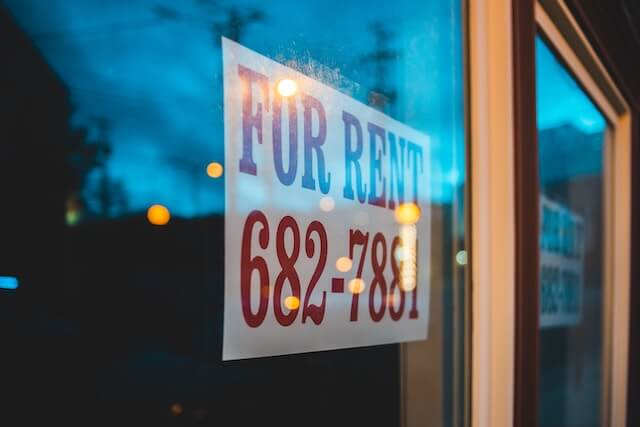In the vibrant state of Oregon, the conversation around rent control has taken center stage. With the passing of Senate Bill 608 in 2019, Oregon embarked on a unique journey to address the challenges of rising housing costs while ensuring a fair and balanced approach for both landlords and tenants. This legislation, often dubbed “rent control with a cause,” signifies a pivotal moment in the state’s commitment to fostering stability and affordability in the rental market.
Understanding Rent Control and Its Purpose
Rent control, a policy implemented in various regions, is designed to regulate the pricing dynamics in the rental market. Primarily, its intends to protect tenants from excessive rent increases. The goal is to strike a balance between the interests of landlords and the need for stable and affordable housing for tenants. Rent control typically involves setting limits on how much a landlord can increase rent and the frequency of such increases.

Rent control, as a policy, has historical roots dating back to the early 20th century. The need for rent control often arises during periods of economic upheaval or housing shortages. It also becomes a need during crises where rapid urbanization strains the available housing stock. States tend to implement rent control as a response to escalating rental prices. By doing so, they protect tenants from exploitative practices. Furthermore, they are able to ensure housing affordability during challenging economic times.
During World War II, for instance, the federal government implemented rent control measures to prevent price gouging and maintain social stability as millions of Americans moved to urban centers for wartime jobs. Over time, the reasons for implementing rent control have evolved but often center around maintaining a balance between landlords’ interests and tenants’ rights.
The Genesis of Senate Bill 608
As mentioned earlier, the discourse on rent control in Oregon reached a turning point with the passage of Senate Bill 608. The bill aimed to mitigate the impacts of escalating housing costs on tenants while considering the concerns of landlords.
The passage of the bill was a collaborative effort, but certain figures played pivotal roles in shaping and championing the legislation. One significant figure is Oregon Governor Kate Brown, who signed the bill into law in February 2019. Governor Brown expressed the importance of addressing housing affordability issues and protecting tenants from arbitrary rent increases and no-cause evictions.
Senator Shemia Fagan and Representative Mark Meek were key sponsors of Senate Bill 608. Their involvement and advocacy reflected a commitment to finding a middle ground between landlords and tenants, recognizing the challenges faced by both parties in Oregon’s evolving rental market.
Recognizing the key figures behind this bill provides insight into the motivations and intentions shaping rent control policies in states like Oregon.
Impact on Rent Increase and Evictions
Under Senate Bill 608, Oregon adopted a statewide rent control policy that limits annual rent increases to a maximum of 7% plus inflation. Additionally, the law imposes restrictions on no-cause evictions, offering tenants more security in their housing arrangements.
The legislation ensures that landlords have a justifiable reason to terminate a lease without cause. Examples may include renovations or the landlord’s intent to move into the property. This balances the need to protect tenants from arbitrary eviction while allowing landlords the flexibility to manage their properties effectively.

Notices of eviction for “no-fault” evictions need to be given with ninety days’ notice. The landlord is required to pay the tenant a relocation assistance fee. Usually, the fee is equal to a month’s rent.
Landlords have the right to evict month-to-month tenants without cause throughout the first year with thirty days’ notice. Tenants who are being evicted “for cause” have thirty days to remedy any lease infractions.
The Pros and Cons of Rent Control in Oregon
Pros
Tenant Stability: One of the primary advantages of rent control in Oregon is the increased stability it provides for tenants. With predictable rent increases, tenants can better plan their budgets and long-term housing arrangements.
Affordability: By curbing excessive rent hikes, the law aims to maintain a level of affordability in the rental market, addressing concerns about housing becoming unattainable for many.
Balanced Approach: Senate Bill 608 represents a balanced approach that considers both the rights of landlords and the housing needs of tenants. It acknowledges the complexities of the rental market.
Cons
Supply and Demand Dynamics: Critics argue that rent control can disrupt the natural supply and demand dynamics of the rental market. This may potentially lead to a reduction in the availability of rental units.
Property Maintenance Concerns: Some landlords express concerns that limitations on rent increases might impede their ability to fund necessary property maintenance and improvements.
Potential for Unintended Consequences: While the intent is to protect tenants, rent control policies can sometimes have unintended consequences. For example, they can discourage property development or reduce overall housing quality.

Striking a Delicate Balance
Oregon’s rent control policy reflects the state’s commitment to finding a delicate balance between tenant protection and landlord interests. The law attempts to ensure affordable and stable housing while recognizing the complexities of the rental market.
As rental agents navigate this regulatory landscape, platforms like Padleads become essential in connecting landlords and rental agents with tenants. With Padleads, you can publish and syndicate listings to high-traffic websites. Additionally, the platform gives you a venue to communicate with potential tenants. Having an efficient communication channel, you can clearly inform them of the leasing terms and their rights as tenants.